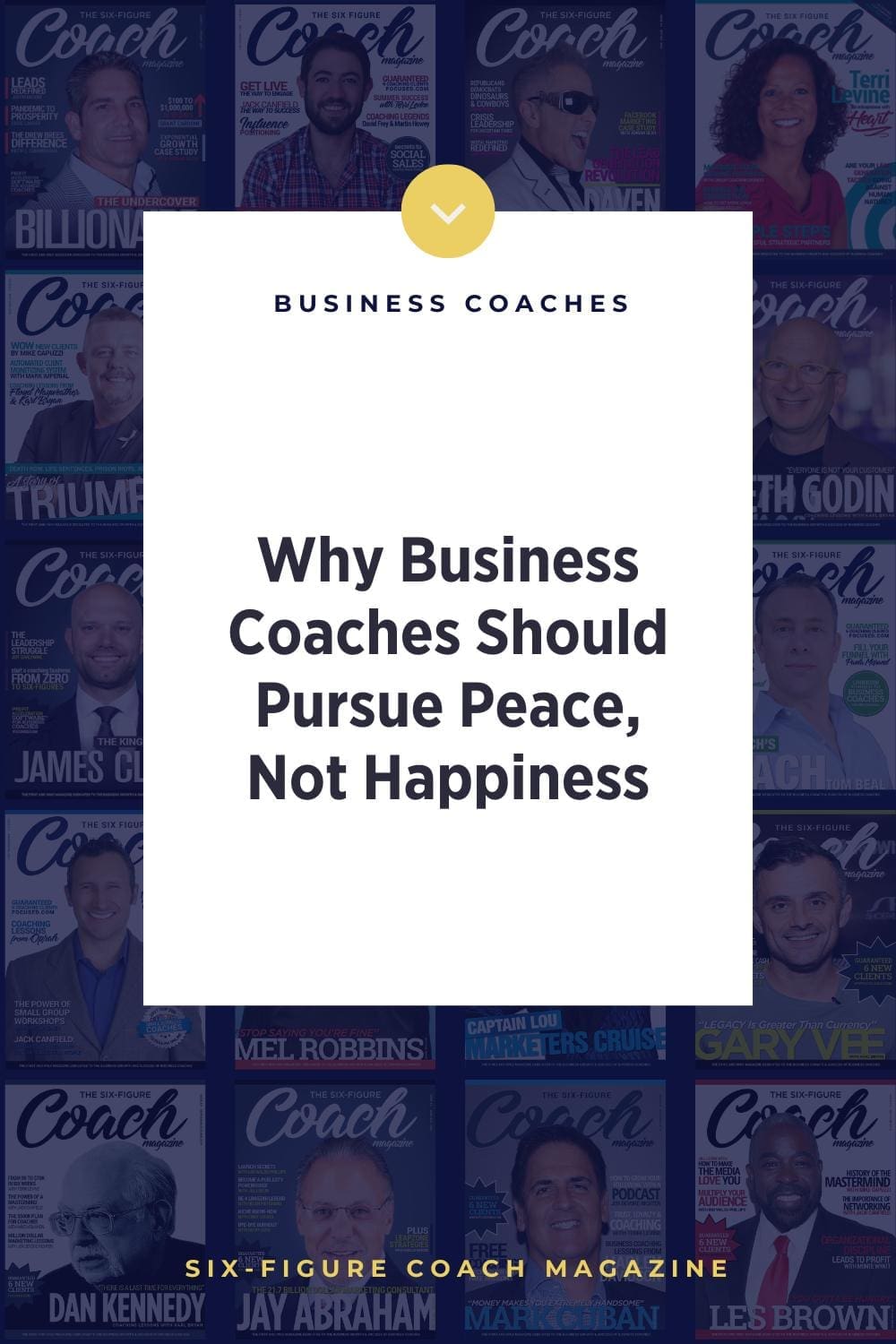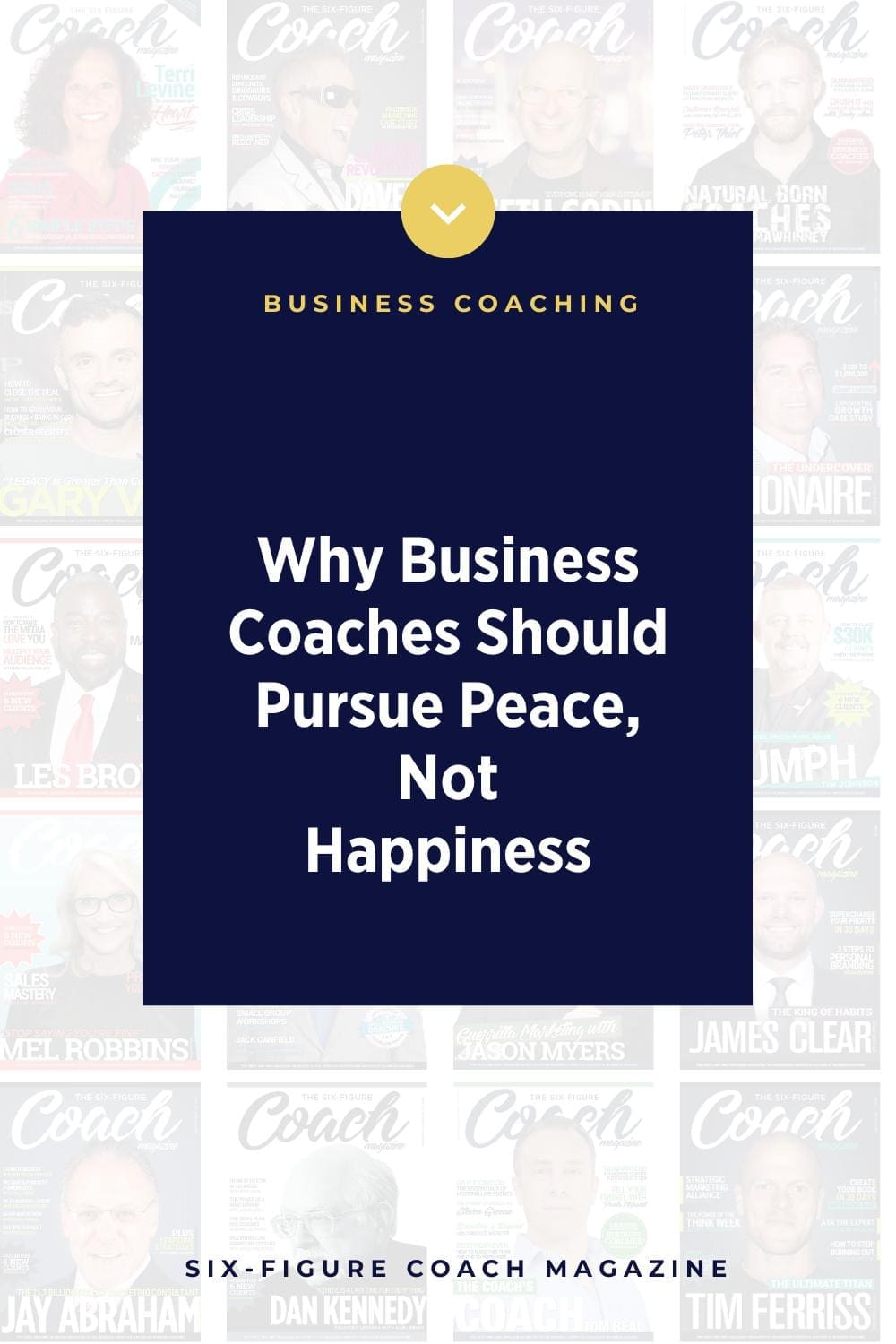Why Business Coaches Should Pursue Peace, Not Happiness
Trial and Error: The Coach’s Biggest Trap
Most coaches try to innovate from scratch—crafting new programs, inventing new funnels, or experimenting with untested marketing ideas.
Most coaches and entrepreneurs say they want “happiness.” But here’s the problem: happiness is fleeting. It comes in bursts—a client win, a big payday, a standing ovation at an event. And just as quickly as it arrives, it fades.
Peace, on the other hand, is sustainable. It’s the foundation that keeps you grounded through the highs and lows of business coaching. As Karl Bryan explains in Business Coaching Secrets Episode 314, if you want longevity, fulfillment, and true influence as a coach, stop chasing happiness and start building peace.
Why Happiness Fails as a Goal
Happiness is often tied to external events:
-
Signing a new client.
-
Hitting your income goal.
-
Seeing positive feedback on social media.
The issue? These triggers are temporary. If your well-being depends on them, you’ll constantly ride an emotional rollercoaster—celebrating today, anxious tomorrow.
Business owners feel this same cycle, which is why so many burn out. Coaches must break it for themselves and help their clients do the same.
Why Peace Wins Every Time
Peace isn’t about ignoring ambition or lowering standards. It’s about cultivating an inner stability that doesn’t swing with every win or loss.
For a coach, this means:
-
Confidence in your process — you know your systems deliver results.
-
Clarity in your priorities — you focus on what matters, not the noise.
-
Calm in the storm — you guide clients with steadiness, even when they panic.
When you operate from peace, you’re more consistent, more persuasive, and more attractive to high-value clients.
Action Steps for Coaches
1. Redefine Success
Instead of measuring only “Did I hit my number this month?” ask:
-
Did I stay aligned with my values?
-
Did I serve my clients fully?
-
Did I protect my time and energy?
These are markers of peace, not just happiness.
2. Build Systems That Remove Stress
Chaos is the enemy of peace. Audit your coaching practice:
-
Do you still chase down emails manually?
-
Are you over-relying on your memory for follow-ups?
-
Is your marketing reactive instead of strategic?
Introduce tools like Profit Acceleration Software™ to provide structure and proof, so both you and your clients feel secure.
3. Coach Clients Toward Peace
Teach business owners to:
-
Replace perfectionism with progress.
-
Focus on controllable actions, not uncontrollable outcomes.
-
Build businesses with systems that create freedom, not more work.
Helping clients pursue peace makes your coaching more transformational than simply helping them “make more money.”
Example: The Peaceful Coach vs. The Happy Coach
-
The “happy” coach celebrates signing three clients, but when two cancel, they spiral.
-
The “peaceful” coach builds a recurring revenue model and steady lead pipeline. Client churn doesn’t rattle them—they know the system works.
Which one do you think grows faster and lasts longer?
Final Thoughts
Happiness is a moment. Peace is a state.
If you want to thrive as a business coach—and teach your clients to do the same—focus on building peace through systems, clarity, and confidence. It will outlast every win, loss, and market shift you’ll ever face.
Want more strategies like this?
Subscribe to the Business Coaching Secrets Podcast for weekly insights, and claim your free subscription to Six-Figure Coach Magazine packed with tools, scripts, and frameworks to grow your coaching practice.
You may also like
The Power of Small Wins: How Coaches Can Crush Overwhelm and Move Clients Forward
Discover how business coaches can leverage small wins to eliminate client overwhelm, build momentum, and drive profit. Actionable insights, examples, and a proven system—book a call to learn more.
Raise Your Bottom, Not Your Ceiling: The Game-Changer for Business Coaches
Discover why raising your bottom, not just your ceiling, can revolutionize your coaching business. Actionable insights & examples from Karl Bryan.
The 50 Ways Strategy: How Business Coaches Can Unlock Growth (and Their Own Confidence)
Discover the “50 Ways” exercise for business coaches to unlock client growth, boost your coaching confidence, and build a thriving practice. Action steps and real-world examples included.












